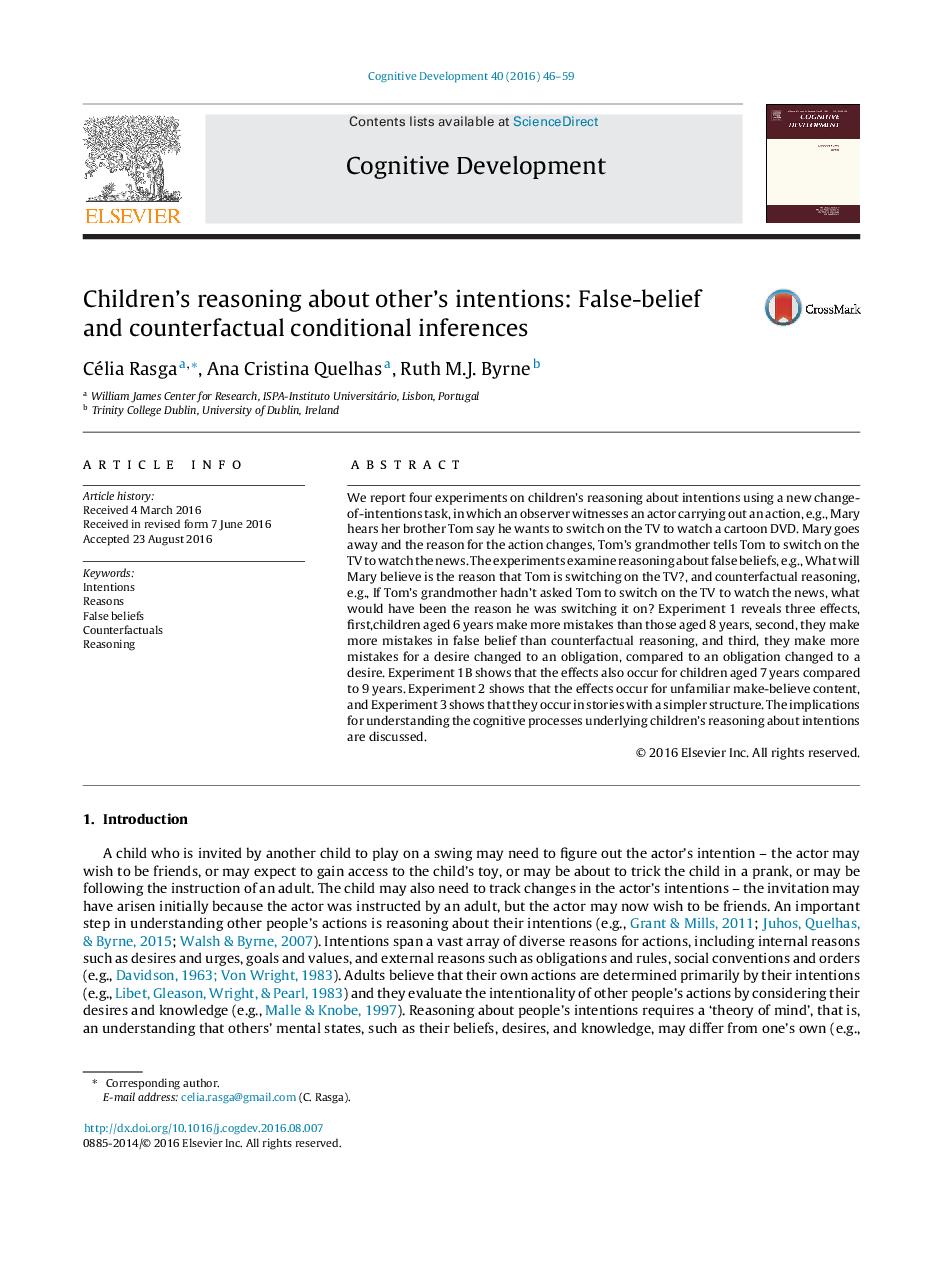| کد مقاله | کد نشریه | سال انتشار | مقاله انگلیسی | نسخه تمام متن |
|---|---|---|---|---|
| 7272314 | 1473343 | 2016 | 14 صفحه PDF | دانلود رایگان |
عنوان انگلیسی مقاله ISI
Children's reasoning about other's intentions: False-belief and counterfactual conditional inferences
ترجمه فارسی عنوان
استدلال کودکان درباره اهداف دیگر: نادرست بودن اعتقاد و نتیجه گیری های غیرقانونی مشروط
دانلود مقاله + سفارش ترجمه
دانلود مقاله ISI انگلیسی
رایگان برای ایرانیان
کلمات کلیدی
اهداف، دلایل باورهای غلط، مخالفان، استدلال
موضوعات مرتبط
علوم انسانی و اجتماعی
روانشناسی
روانشناسی رشد و آموزشی
چکیده انگلیسی
We report four experiments on children's reasoning about intentions using a new change-of-intentions task, in which an observer witnesses an actor carrying out an action, e.g., Mary hears her brother Tom say he wants to switch on the TV to watch a cartoon DVD. Mary goes away and the reason for the action changes, Tom's grandmother tells Tom to switch on the TV to watch the news. The experiments examine reasoning about false beliefs, e.g., What will Mary believe is the reason that Tom is switching on the TV?, and counterfactual reasoning, e.g., If Tom's grandmother hadn't asked Tom to switch on the TV to watch the news, what would have been the reason he was switching it on? Experiment 1 reveals three effects, first,children aged 6 years make more mistakes than those aged 8 years, second, they make more mistakes in false belief than counterfactual reasoning, and third, they make more mistakes for a desire changed to an obligation, compared to an obligation changed to a desire. Experiment 1B shows that the effects also occur for children aged 7 years compared to 9 years. Experiment 2 shows that the effects occur for unfamiliar make-believe content, and Experiment 3 shows that they occur in stories with a simpler structure. The implications for understanding the cognitive processes underlying children's reasoning about intentions are discussed.
ناشر
Database: Elsevier - ScienceDirect (ساینس دایرکت)
Journal: Cognitive Development - Volume 40, OctoberâDecember 2016, Pages 46-59
Journal: Cognitive Development - Volume 40, OctoberâDecember 2016, Pages 46-59
نویسندگان
Célia Rasga, Ana Cristina Quelhas, Ruth M.J. Byrne,
